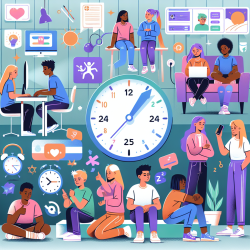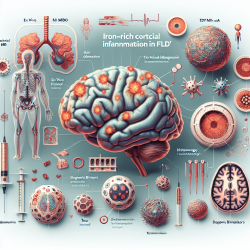Introduction
In the realm of reproductive health care, the experiences of women with female genital cutting (FGC) present unique challenges that require a nuanced understanding from health care practitioners. A recent study titled "Reproductive health care appointments: How the institutional organization of obstetric/gynecological work shapes the experiences of women with female genital cutting in Toronto, Canada" provides valuable insights into these challenges. This blog aims to distill key findings from this research and offer actionable strategies for practitioners to enhance their care for women with FGC.
Understanding the Disjuncture
The study, conducted through Institutional Ethnography, highlights a significant disjuncture between the needs of women with FGC and the training of obstetrician/gynecologists (OB/GYNs). Women with FGC often engage in "emotional healthwork" during appointments, which includes explaining their FGC to doctors and managing their emotional responses to clinical encounters. This emotional labor is compounded by the lack of specialized training among OB/GYNs, who are primarily trained to address surgical and reproductive abnormalities rather than the complex emotional and cultural needs of these women.
Key Findings for Practitioners
- Expand Training and Awareness: OB/GYNs and other health care providers should seek additional training focused on the cultural, emotional, and psychological aspects of caring for women with FGC. This includes understanding the cultural significance of FGC and being sensitive to the emotional responses it may evoke during clinical interactions.
- Integrate Emotional Support: While OB/GYNs may not be trained mental health professionals, integrating basic emotional support strategies into practice can significantly improve patient experiences. This includes active listening, validating emotions, and providing a non-judgmental space for patients to express their concerns.
- Collaborative Care Models: Developing a multidisciplinary approach that includes mental health professionals, social workers, and cultural mediators can provide comprehensive care that addresses both the physical and emotional needs of women with FGC.
- Enhance Communication Skills: Practitioners should focus on improving their communication skills, particularly in reading and responding to non-verbal cues. This can help in building trust and reducing the feelings of stigma and judgment that women with FGC may experience.
Encouraging Further Research
While this study provides a critical understanding of the challenges faced by women with FGC, it also highlights the need for further research. Practitioners are encouraged to engage in or support research initiatives that explore innovative care models and training programs that can bridge the gap between patient needs and provider capabilities.
Conclusion
By implementing the insights from this research, practitioners can improve their care for women with FGC, ensuring that their reproductive health care experiences are respectful, inclusive, and supportive. As we continue to learn and adapt, the ultimate goal is to create a health care environment where all women feel understood and valued.
To read the original research paper, please follow this link: Reproductive health care appointments: How the institutional organization of obstetric/gynecological work shapes the experiences of women with female genital cutting in Toronto, Canada.










